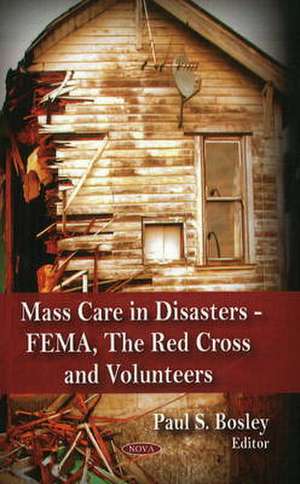Mass Care in Disasters
Editat de Paul S. Bosleyen Limba Engleză Hardback – 12 mai 2009
Preț: 476.90 lei
Preț vechi: 650.36 lei
-27% Nou
Puncte Express: 715
Preț estimativ în valută:
91.25€ • 99.44$ • 76.90£
91.25€ • 99.44$ • 76.90£
Carte disponibilă
Livrare economică 03-17 aprilie
Preluare comenzi: 021 569.72.76
Specificații
ISBN-13: 9781606927250
ISBN-10: 1606927256
Pagini: 124
Ilustrații: tables & charts
Dimensiuni: 161 x 238 x 15 mm
Greutate: 0.38 kg
Editura: Nova Science Publishers Inc
ISBN-10: 1606927256
Pagini: 124
Ilustrații: tables & charts
Dimensiuni: 161 x 238 x 15 mm
Greutate: 0.38 kg
Editura: Nova Science Publishers Inc
Cuprins
Preface; Voluntary Organisations; National Disaster Response; Index.













